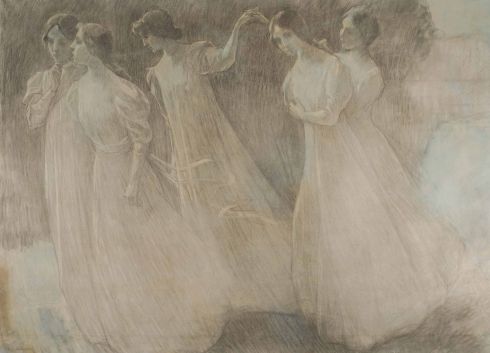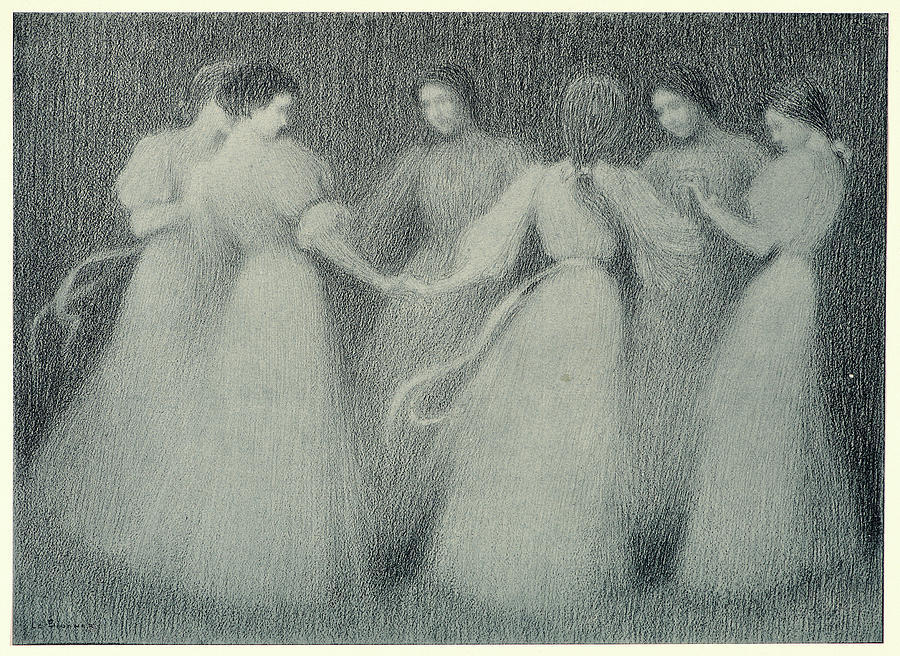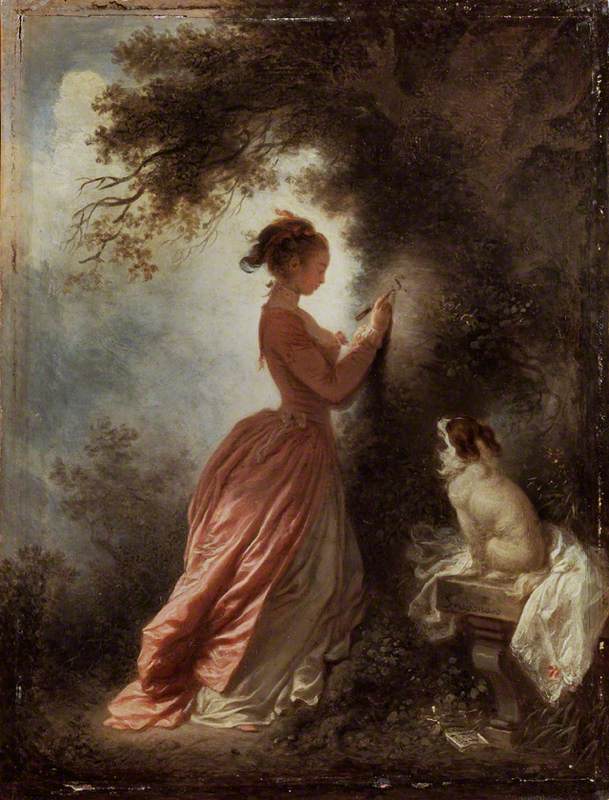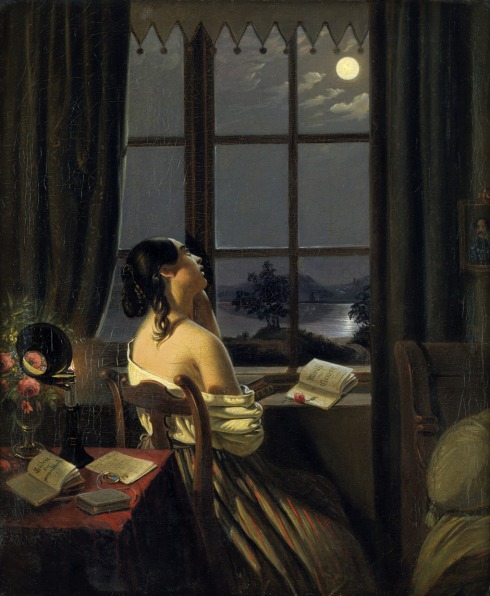Lord Byron is the epitome of Romanticism – he was ‘mad, bad and dangerous to know’, a lonely and misunderstood individual who wrote poetry, led a life filled with love affairs and travels, he fought in Greece, he has a literary hero named after him. To dream of being his muse, well ‘the pleasure, the privilege is mine‘. Since I named my blog after him, these verses sound even sweeter on my lips:”Farewell, my young Muse! since we now can ne’er meet“. With all that said, I decree that my heart still goes to Shelley all the way. I’ve always preferred him more for I see him as a gentler one, both his poetry and lifestyle are more my cup of tea. Well, Percy Bysshe Shelley, why do I love thee, let me count the reasons.

***
1)Intellect
First of all, I’m astonished by his ferocious intellect and hunger for knowledge. As a student, he was said to have attended only one lecture at Oxford and often spent up to sixteen hours a day reading. In addition to being well read and having rich vocabulary, Shelley was also good at languages, being proficient in ancient Greek and Italian. (“Shelley was an excellent classicist, and sufficiently proficient in ancient Greek to make, as an adult, a fine translation of Plato’s Symposium.” (1) and “Among the major Romantic poets, Byron and Shelley spent the most time in Italy (…) and they became proficient in its language and well-read in its literature.” (2) Let’s just remember that he died a month before his 30th birthday, and in that short life he managed to acquire such vast amount of knowledge.
***
2) Rebelliousness
Secondly, a typical romantic trait – rebelliousness. As I already mentioned, legend has it that he only attended one lecture while at Oxford from which he was expelled after less than a year for “writing and circulating a pamphlet promoting atheism.” (3) Whereas I am not promoting atheism for I am not an atheist, at the time when religion, Christianity in particular, was all too-dominant in everyday life, this was a necessary thing to be done. Therefore, I don’t see it as a promotion of atheism as much as a revolt against Christianity. What I admire the most about about this story is that, when asked by his father to renounce his atheist views and his pamphlet, Shelley refused, knowing that it meant the end of the financial support. After that, at the age of 19, he eloped to Scotland with the 16-year old schoolgirl Harriet Westbrook. I mean, just look at his portrait; untamed hair, unbuttoned shirt, wild protruding stare of those blue eyes, a quill in his hand – if that’s not a portrait of a rebellious romantic hero, I haven’t got a clue what is.
***
3) Free Love
As we can see from his elopement with Harriet, Shelley had quite modern views on love and marriage. He went on to live with Mary until he died, but he did have platonic and non-platonic relationships with other women, and, with each others permission, both Mary and Percy occasionally flirted with other people. I see both relationships and an institution of marriage as rather restricting affairs, and therefore I like Shelley’s view on it and his promotion of free love. In poem ‘Queen Mab’, Shelley celebrates all the things I’ve mentioned here: atheism, vegetarianism, republicanism and – free love.
***
3) Social and political activism
Shelley admired William Godwin’s socialist philosophy that was always one step away from anarchism, and imbued such ideas in his own writing and activities. He was politically active and fought for social rights which speaks for itself how seriously he considered problems of social equality to be, this is the ‘Res, Non Verba’ approach which I quite like. I think the case of Byron going to Greece and fighting for independence was a pure debauchery or licentiousness, but with Shelley it was truly about fighting for what he believed to be right, in a civilised and polite manner, defending his arguments with intelligence and eloquence. An example of his active involvement with social problems: “Distracted by political events, he visited Ireland shortly afterward in order to engage in radical pamphleteering. Here he wrote his Addres to the Irish People and was seen at several nationalist rallies. His activities earned him the unfavourable attention of the British government.” (4)
***
4) Poetry
Rather an obvious argument but I ardently love his poems, which is necessary when it comes to loving a poet. I think both Keats and Shelley cherished a cult of pure beauty in their poems. I know many of Shelley’s shorter poems by heart but these are some of my favourite:
A Lament
“O world! O life! O time!
On whose last steps I climb,
Trembling at that where I had stood before;
When will return the glory of your prime?
No more — Oh, never more!….“(5)
and
Mutability
“(…) We rest—a dream has power to poison sleep;
We rise—one wandering thought pollutes the day;
We feel, conceive or reason, laugh or weep,
Embrace fond woe, or cast our cares away:—
IV.
It is the same!—For, be it joy or sorrow,
The path of its departure still is free;
Man’s yesterday may ne’er be like his morrow;
Nought may endure but Mutability.” (
6)
***
5) Richness of expression
Shelley somehow managed to combine the social role of art with pure aestheticism, which is a pursuit that often ends unsuccessfully. (Other good examples of combining these two polar opposites would be the songs by Manic Street Preachers and Kitchen sink realism in films) Shelley’s choice of words and stylistic devices is pure beauty. The book
The Cambridge Companion to Mary Shelley states that Percy ‘preferred more learned, polysyllabic words’ and it gives the examples of his revision of Mary’s manuscript of Frankenstein. He changes Mary’s words ‘have’ to ‘possess’, ‘wish’ to ‘desire’ and my favourite – ‘we were all equal’ to ‘neither of us possessed the slightest pre-eminence over the other’. (
7) This may sound snobbish, and may cause his texts to be a bit harder to understand sometimes, but he was a well read and eloquent person and why should he refrain himself from using rich vocabulary?
***
6) Vegetarianism
Being a vegetarian and promoting vegetarianism is, in my opinion, a sign of true humanity and one of Shelley’s greatest debts to society. I am a vegetarian, purely for ethical reasons, and I am immensely glad that both Mary and Percy Shelley were too. Shelley wrote several essays on the subject, most notable is ‘A Vindication of Natural Diet’, but he does make references on the subject in his other poems and dramas. For example, in Prometheus Unbound he writes “I wish no living thing to suffer pain“(8), and in The Revolt of Islam “Never again may blood of bird or beast/ Stain with its venomous stream a human feast,/ To the pure skies in accusation steaming.” It’s easy to understand that in his time vegetarianism was radical, but one would think that in our day and age everyone would follow a ‘natural diet’, or perhaps it’s just my idealism. Shelley’s commitment didn’t stop at eating habits: “…Shelley went further, refusing to wear material made from animals, including wool and leather. Inveighing against “the muffling of our bodies in superfluous apparel,” he preferred going hatless and eschewed a heavy overcoat for a long black coat made of cotton jean.” (9)
***
Tags: English poet, Free Love, Lord Byron, Mary Shelley, Percy Bysshe Shelley, Poetry, political activism, Rebelliousness, romantic hero, Romanticism, vegetarianism, Why I love Percy Shelley
 Jacob Maris, The Girl feeding her Bird in a Cage, oil on mahagony, 1867
Jacob Maris, The Girl feeding her Bird in a Cage, oil on mahagony, 1867








